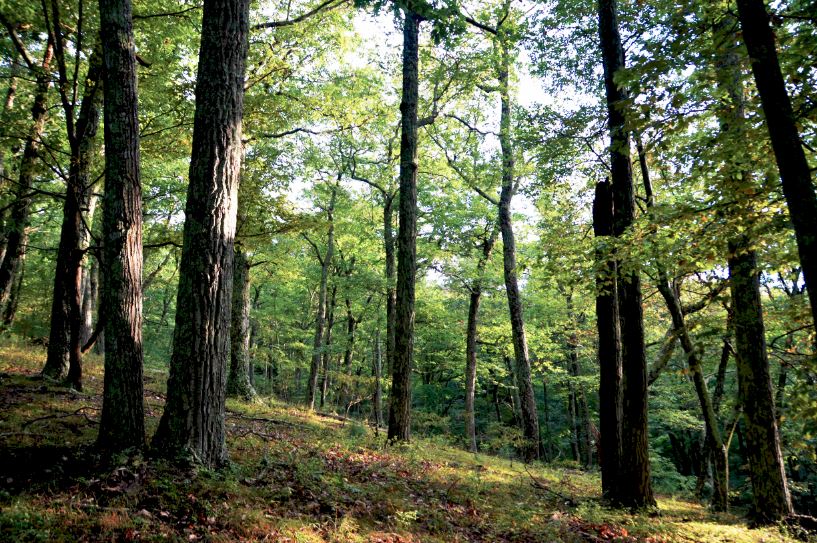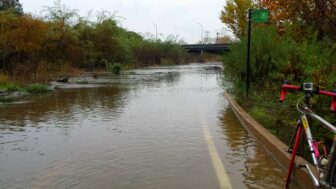This summer was not an easy one. We faced several blows in the anti-pipeline movement.  The days were long, and hot — too hot — and the months slipped away.
The days were long, and hot — too hot — and the months slipped away.
Before I knew it, the summer was over, and construction was underway for two massive fracked-gas pipelines in Virginia, themselves like a force of nature, unstoppable and immovable.
So when I finally got the chance to visit the home of Bill and Lynn Limpert, whose breathtaking land is in the path of the Atlantic Coast Pipeline, it was long past time. I had heard stories about how extraordinary it was to visit: to say hello and stand with Ona, the 300-year-old sugar maple; to hike the old-growth forest that had never been cut; to speak and sing with Bill and Lynn Limpert, the amazing couple at the heart of it all who have everything to lose. Safe to say, my expectations were high.
And they were met.
The weekend was filled with music, magic, and moving moments. I found myself moved to tears at the stories of the weekend visitors, a group from the West Virginia-based Mountain Lakes Preservation Alliance. The beauty of the Limperts’ land truly transported me so I felt I was walking through a fairy tale movie landscape.

And the music! We were graced with the presence of lifelong folk musicians, who strummed and sang the pipeline movement to life.
In my air-conditioned Takoma Park office, seven stories above the ground, I often felt seven worlds removed from reality. I often find this sort of disconnection a necessary evil as a lifelong climate activist: when you’re facing an issue as existential and overwhelming as global warming, you need to remove yourself from its horrors. Otherwise, it can feel like too much.
But this is an immense privilege I have — to hide out behind a computer. So many others don’t have the opportunity to escape the climate crisis. The Limperts cannot simply fold their land into a lockbox and hide it away. That’s why it is so important to meet them and learn from them, and remember what we are all fighting for.
And in the midst of the setbacks, we’ve also won some crucial victories — so the fights against the Atlantic Coast and Mountain Valley pipelines are far from over.
This summer, the 4th Circuit Court threw out crucial permits provided by the National Park Service, the U.S. Fish and Wildlife Service, and the Forest Service. As a result of these court decisions, the Federal Energy Regulatory Commission–the main agency in charge of overseeing these pipelines–made Dominion and EQT stop work on both the ACP and the MVP.
Unfortunately, since then, FERC staff lifted the stop-work orders for much of the route of both pipelines. FERC’s move was hugely controversial, and not just to everyone who opposes this unnecessary and damaging pipeline. Two FERC commissioners took the rare step of issuing a press release criticizing the decision to allow MVP to continue work.
In the meantime, CCAN and our allies have filed the biggest challenge yet to both pipelines. We are challenging FERC’s overarching approval of both the ACP and MVP, arguing that the pipelines are unneeded and damaging to our climate and the environment.
From the streets, to the courts to the forests, we are dedicated to fighting these pipelines in any way we can.






